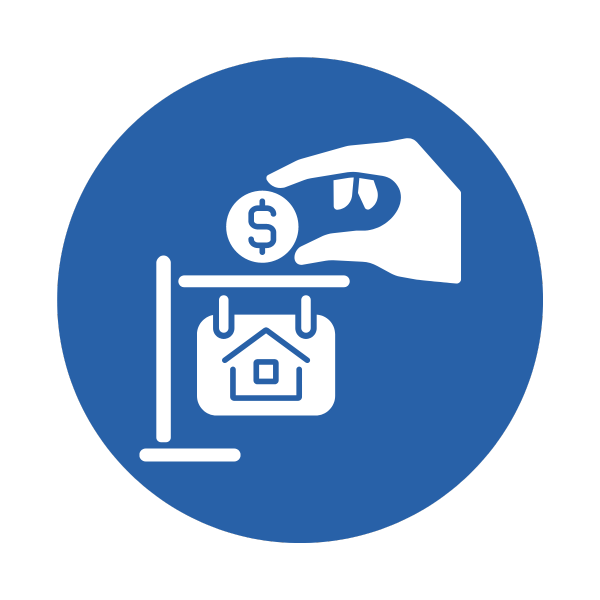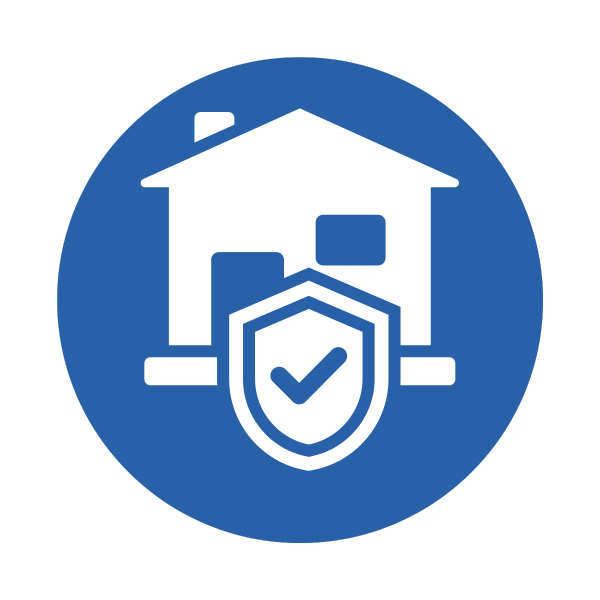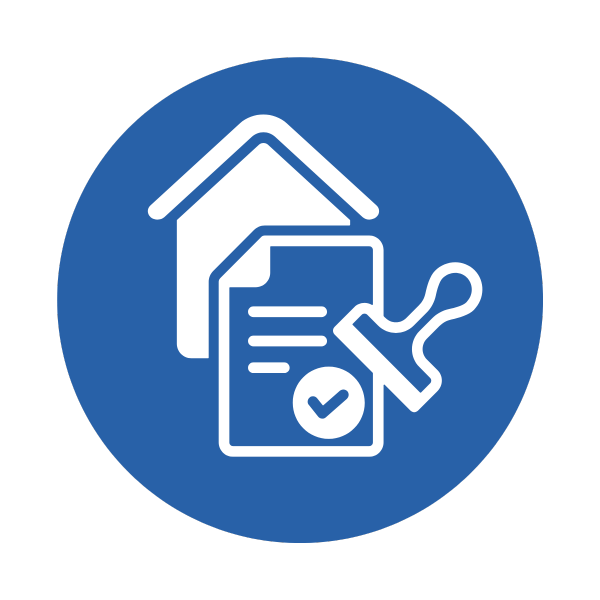Do you own a Chicago rental property or have you considered purchasing one?
Regardless of whether you are well off or you have little money, it is possible to get started investing in real estate. While investing in real estate does require some money, there are many ways you can start without breaking the bank! What can you do to overcome upfront costs? How can you assure quick returns on your investment? Stay tuned!
The idea of getting involved with a property investment can also be a lot to take on, especially when considering the initial investment and the time needed to generate positive cash flow from rental properties. Don't worry we have you covered! In this guide, we'll explore effective strategies and the vital role of a Chicago property management company in helping new real estate investors navigate these challenges.
Understanding the Basics of Investment in Chicago
Investing in property, whether it's residential or commercial real estate, involves acquiring assets with the goal of earning returns through rental income or capital gains. Chicago, with its dynamic real estate market, offers abundant opportunities for investment properties. The demand for both residential and commercial properties in the Chicago metro area means significant potential for investors. If you don't want to be a real estate investor alone, there are also options such as JV partnerships, syndications, or real estate investment trusts (REITs). You can also find peace as potential property owners by hiring a trusted property manager.

Addressing Concerns Over Up Front Costs
1. Smart Financing Options or "House Hacking":
The perceived high startup costs can deter potential investors. However, numerous financing options are available, such as a Federal Housing Administration loan or FHA loans, which allow down payments as low as 3.5%, making the acquisition of investment properties more accessible and easier to purchase your first investment property. If you can buy a multi-family building and live in one of the units, you can rent out the rest.
If completed correctly, the renters can pay both your mortgage and property expenses and sometimes more! Since you will have saved in this process, any money you do have can be saved for the downpayment on your next investment or Chicago property management services (if you'd like to get your time back!).
What do you need for an FHA loan?
An FHA loan, which is a mortgage insured by the Federal Housing Administration, is popular for its lower down payment requirements and easier credit qualifications compared to conventional loans. Here’s what you typically need to qualify for an FHA loan:

Credit Score:
The minimum credit score required for an FHA loan is usually 580 to qualify for the low down payment advantage, which is currently at 3.5%. If your credit score is between 500 and 579, you might still qualify, but you would likely need to put down at least 10%.

Down Payment:
As mentioned, the minimum down payment is 3.5% if your credit score is 580 or higher. If it's lower, you’ll need to put down 10%.

Mortgage Insurance:
You'll need to pay two types of mortgage insurance premiums (MIP): an upfront premium (which is about 1.75% of the home loan, and can be financed into the mortgage) and an annual premium (which varies based on the length of the loan, the amount borrowed, and the initial loan-to-value ratio). This annual premium is typically divided into monthly payments and added to your mortgage payment.

Debt-to-Income Ratio (DTI):
FHA loans require a DTI ratio of 43% or less in most cases, though it is possible to get approved with a higher DTI ratio if there are compensating factors. This ratio is a comparison of your total monthly debts (including the future housing payment) to your gross monthly income.

Employment History:
FHA lenders prefer borrowers who have steady employment history for the last two years. They will verify employment through recent pay stubs, federal tax returns, and bank statements.

Primary Residence:
FHA loans are designed for primary residences only. You must occupy the property within 60 days of closing and live in it most of the year.

Property Approval:
The property must meet HUD’s minimum property standards and pass an FHA appraisal. The appraisal is both financial and for safety and security purposes, ensuring the property is a sound investment and safe to live in.

Valid Social Security Number (SSN):
You must have a valid SSN and be a lawful resident of the United States. Lenders will use your SSN to verify your identity and credit information.

Legal Age:
You must be of legal age to sign for a mortgage in your state. In Illinois, as in the rest of the United States, the legal age to sign any legally binding contract, including an FHA (Federal Housing Administration) home mortgage, is 18 years old. This is because individuals under the age of 18 are generally considered minors and do not have the legal capacity to enter into contracts such as a mortgage. Exceptions could include cases where a minor is legally emancipated, but typically, one must be at least 18 to sign a mortgage.

Closing Costs:
Like any mortgage, there are closing costs involved, which can include fees for loan origination, home inspections, appraisals, title searches, and other services.
Getting an FHA loan also involves going through a lender approved by the FHA, and not directly from the FHA itself. It's advisable to shop around to find a lender who offers competitive rates and terms that best suit your financial situation.
2. Seeking Investment Partners:
Collaborating with other investors can spread the financial responsibilities and risks, potentially increasing your buying power and reducing overall expenses related to property management fees and maintenance issues.
3. Exploring Emerging Micro Markets:
Venturing into emerging neighborhoods or suburbs can uncover properties with lower purchase prices yet high potential for rental income as these areas develop.

Speeding Up the Process to Positive Cash Flow
1. Hiring Efficient Property Management:
Remember that not all property managers are created equal and it is important to do your due diligence to meet your property management needs in Chicago. There are signs of a good property management company that you need to know! A skilled property management company can streamline the process of finding and vetting prospective tenants, ensuring your rental properties are occupied swiftly by qualified tenants. This can significantly shorten the time to achieve positive cash flow. If you are looking for the best property management company in Chicago make sure you check out our complete guide!
Checking Google reviews can be a highly effective way to find the best property manager for your needs and is highly recommended before singing property management contracts. Here’s how this approach can help:
Real Experiences and Feedback: Google reviews provide real-world experiences from other property owners who have used a particular management company's services. These reviews can offer insights into how the company operates, the quality of their customer service, and the effectiveness of their management practices.
Quality of Service: By reading through the reviews, you can gauge the general satisfaction level of clients with the company's services. Positive reviews often highlight strengths such as prompt communication, effective handling of maintenance issues, and reliable handling of tenant-related matters. Conversely, negative reviews can alert you to potential problems, such as poor communication, high tenant turnover, or inefficiency in handling emergency repairs.
Reputation and Credibility: A property management company with many positive reviews and a high rating is likely to be reputable and reliable. Reviews can build or diminish a company’s reputation, providing a snapshot of the company’s standing in the market and community.
Response to Complaints: How a company responds to negative reviews can be just as informative as the reviews themselves. A professional and solution-oriented response to criticism can indicate a company's commitment to customer service and continuous improvement.
Comparison and Contrast: Reviews allow you to compare different management companies directly. You can weigh their respective strengths and weaknesses as reported by clients, helping you make an informed decision based on others' varied experiences.
Local Insights: Particularly for property management, local knowledge and expertise are crucial. Reviews can reveal how well a company knows the local real estate market, laws, and regulations, which is essential for effective management and compliance.
Service Verification: Reviews often detail specific services provided by the company, such as rental analysis, tenant screening, day-to-day operations, and eviction assistance. You can verify if the company offers the range of services you need and how effectively they carry out these tasks.
By considering these points, checking property management Google reviews can significantly assist you in choosing the right commercial or residential property management company alongside asking the right questions!
2. Optimizing Rental Strategy:
One of the most crucial factors in owning an investment property in Chicago is deciding what the right rental price is. You have to choose a rental rate that coincides with local market conditions and attracts tenants without hurting your earnings. Conduct a detailed market analysis to determine the most effective rental prices, maximizing your monthly rent and ensuring competitive rates that attract tenants. This strategic approach involves assessing current market conditions, comparing similar rental properties, and understanding local demand dynamics to set a price that balances profitability with market competitiveness. You can use a free rental analysis calculator to help with this process!
You must understand tenant preferences as well as seasonal trends so that you can adjust rental strategies accordingly. Marketing properties on many platforms is key to reaching the most potential tenants. This might include recommending slight price adjustments during peak rental periods or offering promotional incentives during slower seasons to maintain high occupancy rates. By closely monitoring the local real estate market and adapting their strategies to shifts in tenant demand and economic conditions you can optimize your rental income and reduce vacancy rates. It all starts with correct rent estimation and of course making sure your tenants pay rent once they move in.
3. Handling Maintenance Efficiently:
Managing a property includes proactive maintenance to avoid expensive repairs and reduce downtime. Minimizing maintenance operating costs is crucial; adept handling of maintenance requests and conducting routine inspections can significantly lower operating expenses while enhancing tenant satisfaction.
From the outset, investing in high-quality material and establishing relationships with dependable vendors are key strategies for mitigating potential maintenance headaches. High quality material tends to have a longer lifespan and requires fewer repairs, which helps in keeping maintenance costs down. Furthermore, having a roster of trusted vendors ensures quick and effective responses to emergency situations, minimizing the impact on both the property's condition and tenant satisfaction.
Owning property inevitably involves unexpected maintenance issues. Being prepared with a solid understanding of these potential costs and having preventive measures in place is essential. This involves regular property assessments to identify and address issues before they escalate into major problems, thus effectively managing and even reducing long-term maintenance expenses. These practices not only prolong the life of the property but also contribute to a more predictable and manageable maintenance budget.

Partnering with a Trusted Property Management Company Has Long-Term Benefits
Stress Reduction:
Managing real estate investments can be stressful, especially dealing with day-to-day maintenance and tenant issues. A property management company takes on these tasks, allowing you to focus on growing your investment portfolio.
Maximized Occupancy Rates:
Using advanced marketing property techniques known to the real estate industry and maintaining high standards of tenant satisfaction, the best property management companies ensure your rental properties enjoy high occupancy rates. Your property manager also often offers owner portals or detailed financial reporting tools that allow owners to see all of their real estate transactions for their property while staying hands-off.
Legal and Financial Compliance:
Navigating the complex legal and financial landscape of real estate investing is easier with a property management company. They ensure compliance with local housing regulations, manage lease agreements, and handle rent collection and eviction processes.
Enhanced Financial Management:
Comprehensive financial reporting tools provided by property management companies offer insights into cash flow, monthly reports, and financial statements, essential for evaluating the performance of your investment properties.
Conclusion

Starting your Journey in Real Estate Investing in Chicago Doesn't Have to be Overwhelming
Profiting off of a real estate rental property, with the right help, doesn't have to be hard. However, finding the right property can be a challenge. With strategic financing options, collaborations, and the expertise of a dedicated management company, you can minimize initial costs and accelerate the generation of rental income. We can also help you find and grow your Chicago real estate portfolio. Embrace the opportunity to secure your financial future in one of America’s most vibrant real estate markets.
We Can Help!
If you have questions about real estate investing or how we can help make you next real estate investment a home run, consider us at Landmark Property Management a resource, we’re always happy to help. Feel free to check out our website at ChicagosPropertyManagement.com or give us a call.







